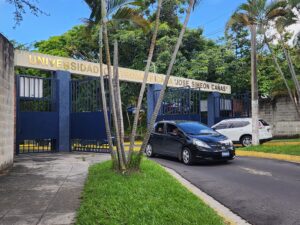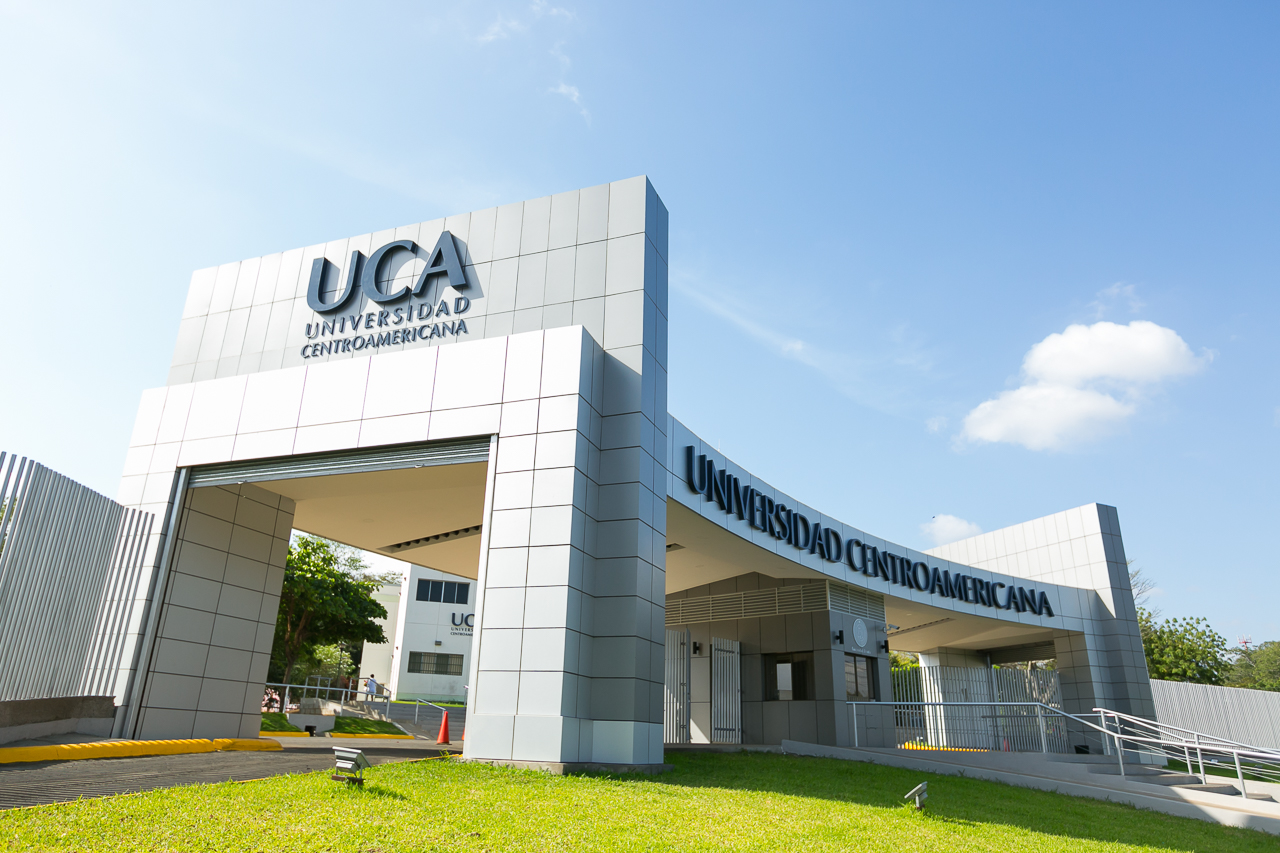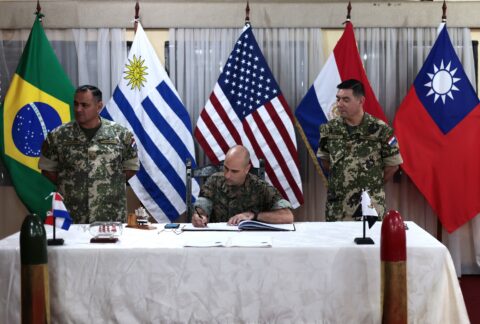The Daniel Ortega-Rosario Murillo regime of Nicaragua ordered the closure and confiscation of assets of the Central American University (UCA) in Managua, accusing it of functioning as “a terrorism center to raise violence and destruction levels, organizing armed and hooded criminal groups that used terrorist methods in the country,” according to official daily La Gaceta.
“The closing of the Central American University and its occupation […] is the final blow to the generation of critical thinking in Nicaragua,” Juan Carlos Arce, a lawyer and human rights defender with the Nicaragua Nunca Más Human Rights Collective, told Diálogo on September 20. “The objective of this action by the Sandinista dictatorship is to eliminate any space or center of thought. There are no [schools] that fulfill the functions of universities to generate knowledge or thought.”
The regime’s decision comes five years after this center of studies was the backdrop of student protests that demanded the departure of the Ortega-Murillo from power in 2018, Spanish newspaper El País reported.
“In 2018, protests began over the Indio Maíz reserve. It was burning and the regime did nothing. At the UCA we organized ourselves and went out to protest. When the police started attacking us protesters, they opened the gates and we were able to enter. They were not only attacking us with blows; they were attacking to kill,” María Gómez, a Social Communication student, told the LA Times. “It was the only university where students were taught how to develop their criteria; it was the only one that had that academic autonomy. By losing that, we lose everything.”
“We cannot separate the closing and confiscation of the UCA on August 18, from the closing of more than 3,000 civil society organizations, including the Academy of Sciences of Nicaragua, and the closing and outlawing of more than 27 universities, some of them occupied to found pro-government indoctrination university,” Arce said.
Gómez’s reality is being experienced by a little more than 5,000 students at UCA, renamed the Casimiro Sotelo National University and now controlled by the National Council of Universities, the political arm of the dictatorship, Argentine news site Infobae reported.

“A tendency of all authoritarian regimes is to confront free thinking. Universities are generators of knowledge, they awaken critical consciousness, and produce free thinking in general. Here a university was closed precisely because of that […]; because the capacity to influence from knowledge is persecuted,” priest José María Tojeira, theologian and spokesman of the Society of Jesus in Central America, told Honduran Radio Progreso. “Dictatorships generally impoverish countries more than they can contribute to their development. In Nicaragua we are seeing this clearly.”
The universities José Simeón Cañas of El Salvador and Rafael Landívar of Guatemala enabled a process to receive Nicaraguan students, the Latin American and Caribbean Episcopal Council (CELAM) said on September 5. Authorities of both universities assured that this process could take time, since legal requirements must be fulfilled.
Consequences
In its August Perspectives report, the Center for Transdisciplinary Studies of Central America (CETCAM) said that the attack on the UCA and the Society of Jesus of CELAM are taking place within the context of institutionalization and radicalization of the police state, which the Nicaraguan regime imposes on its society since 2018.
“The accelerated control that the Ortega-Murillo impose on universities and other educational centers, points to a model of indoctrination rather than education, in which students learn the ‘truth’ that Murillo intends to impose on the entire Nicaraguan society with her speeches and narratives,” CETCAM said. “Converted into centers of indoctrination rather than higher education, the control over universities [disrupts] the future of the country; the coming generations are seriously compromised.”
Teachers, researchers, and academics from Latin America, Canada, the United States, and Europe, condemned the closing and expropriation of the UCA in a letter, recalling that the center of studies suffered systematic smear campaigns, attacks on its facilities, freezing of bank accounts, and the banishment of its then chancellor, priest José Idiáquez, and of rthe vice-chancellor general, Dr. Jorge Huete, Panamanian daily La Prensa reported on September 4.
“The consequences are serious because we should remember that having new generations that are educated, technical, and with critical thinking toward reality, makes society grow to have discussions and dialogues in favor of democracy,” Fátima Ortiz, a lawyer and human rights defender in El Salvador, told Diálogo on September 21. “Taking control of universities and centers of higher education represents one of the most desperate ruses of any regime, to maintain control and total power.”
The Supreme Court of Justice of Nicaragua also revoked the renewal of the accreditation of the UCA Mediation Center, Divergentes reported on August 14. This center provided legal services to the population for 54 years, using mediation as an alternative method for conflict resolution.
From 2021 to August 2023, the Ortega-Murillo regime has cancelled the legal status of 29 private universities, confiscated their assets, and changed their names and academic administrations. Although the regime maintains that they are now public entities, students continue to be charged monthly fees, says Central American magazine Expediente Público.
“The Ortega-Murillo dictatorship has a political project that seeks to consolidate a dynastic authoritarian one-party model, through political control of all sectors of society, and to impose indoctrination of the educational system with the reform made last year [2022] to Law 89 on university autonomy,” lawyer and former UCA professor María Asunción Moreno told Infobae. “They legalized the interference of political power in higher education institutions, eliminated university autonomy and academic freedom and, practically, a death certificate was made of the concept of university as a center for the creation of ideas and critical thinking.”









